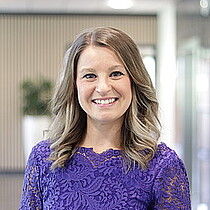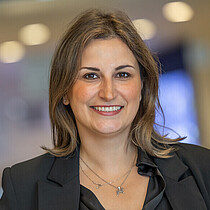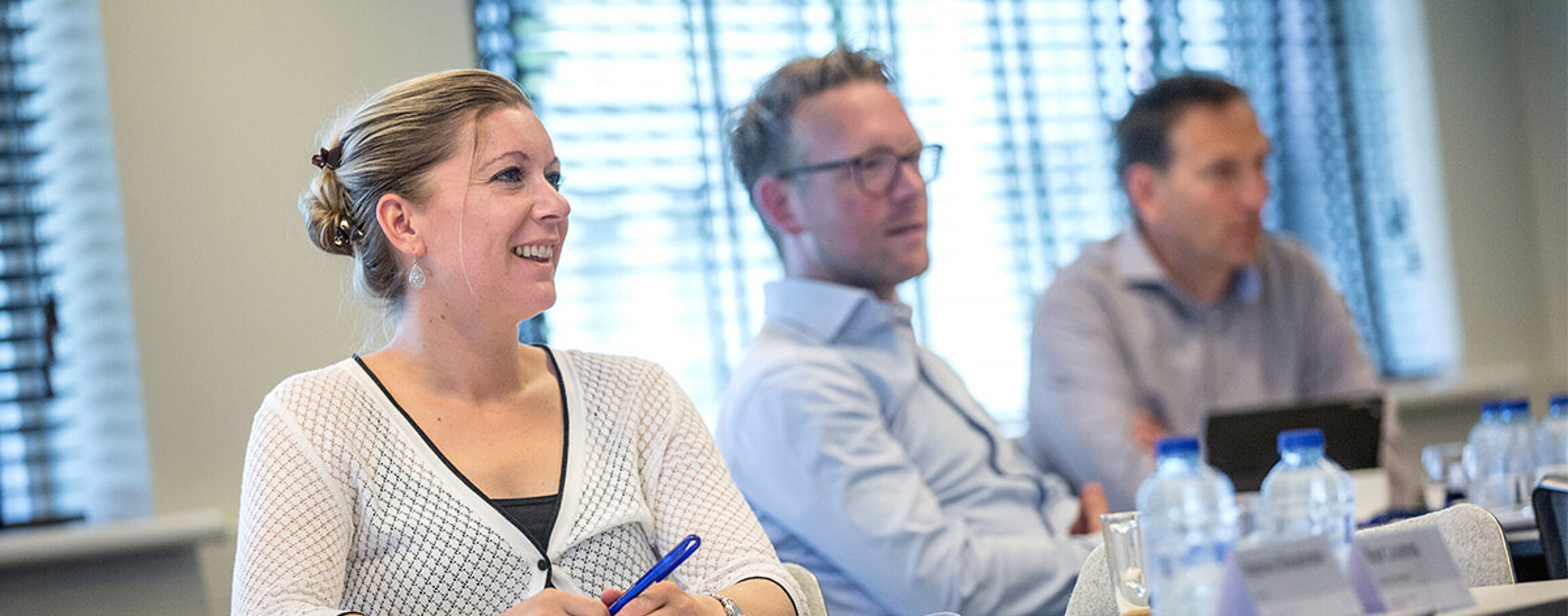Eva Atanasova
Project and business manager at the Rabobank Group
Everybody, regardless of their industry, should join this programme at RSM. Particularly people who are looking for a balance between scientific research and practice. It’s relevant for every company. And it’s helpful when working on a more strategic level; you can really have more impact on decision-making.The biggest take-away was that digital transformation is not about being tech savvy or writing digital strategy, but more about a change in mindset.

A change in mindset towards digital process
Eva Atanasova is a project and business manager at the Rabobank Group. She wanted to study again but was worried it would put too much pressure on her full-time job and personal life. “I found the Diploma Programme in Digital Transformation accessible because you are free to choose the modules, your starting time, and there was the opportunity and freedom to combine it with my work,” Eva said.
Putting science and theory into practice
“I wanted to do something relevant and interesting, while expanding my perspective beyond the financial sector. The programme appealed to me because you can use science and theory, and put it into practice,” Eva said.
The diploma programme is made up of four modules. Completing three of them, in any order, means you can obtain the RSM Digital Transformation Diploma.
Eva’s first choice was Digital Strategy because she wanted to see the bigger picture. “I work in the financial sector at Rabobank and digital transformation for banks in general has happened and is still happening, so we have to embrace it and anticipate adequately.” After this module, she also followed Digital Innovation, and Digital Leadership and Change.
Digital innovation
She said the most interesting and challenging course was Digital Innovation. Eva explains: “We had a session about design thinking; asking your customers about their wishes and needs. We are used to seeing organisations as a given and don’t always ask what their added value is. This approach forces us to go back to our roots: Why am I here? Why do I exist?”. Integrating and translating the customers’ needs into a more abstract strategic level is what Eva found the most challenging, but also the most rewarding. “The design thinking methodology helps you to think about – how do you define your minimum viable product? How do you make it small in order to create change?”
More practical than expected
Eva thought that the programme was even more practical than expected. The real life cases and examples were presented by many professionals from different industries, which did not seem to have much in common at the beginning, but throughout the discussions, she realised that they did.
“The biggest take-away was that digital transformation is not about being tech savvy or writing digital strategy, but more about a change in mindset. Transformation does not happen in a day or two; it’s a process. It’s not only about being completely digital; it’s also about using and applying it to take transformation to the next level.”
Strategic goals
As part of the programme’s Impact Project (IP), Eva focused on Rabobank’s corporate banking ambition to help entrepreneurs grow, for which the bank has established two main strategic goals: 100 per cent digital convenience and giving customers easy access to advice.
“As a co-operative, our identity is rooted in the local communities and that’s why we have physical offices in almost every city and village in the Netherlands. A shift to a more efficient and valuable (digital) customer interaction is in that case crucial. That is why in my research I focused on the main question: How can Rabobank maximize the creation of valuable and relevant interactions with customers, through channels of their preference? The purpose of this research was to pinpoint what the biggest challenges are in the channel interaction with our customers and create strategic framework in order to further optimise the current customer interaction and experience.”
According to Eva it is about making the transition from providing traditional banking services to an organisation that helps entrepreneurs grow. “How do you find the balance between traditional and online banking services, while still giving this personal touch?”
Digging deeper in the impact project
Eva used the Impact Project as a strategic project for reinventing Rabobank’s channel strategy. “The result was a discussion paper for the management team that identified the hurdles that need to be addressed and the strategic choices that need to be made: the biggest added value to the organisation has been to put all of Rabobank’s initiatives together in one paper so we can make decisions based on all the facts.”
Impact on decision-making
“Digital innovation is about really connecting with your customer, using the customer’s needs as a starting point – rather than our products or existing channels. We approach it from the outside and look inwards, as a customer would do.”
Eva: “Everybody, regardless of their industry, should join this programme at RSM, particularly people who are looking for a balance between scientific research and practice. It’s relevant for every company. It’s helpful when working on a more strategic level; you can really have more impact on decision-making.”
Eva Atanasova completed the Diploma Programme in Digital Transformation in 2019. For more information about the programme, see www.rsm.nl/dpdt.
Get your personal advice

Erika Kataveli
Programme advisor
It's my priority to help you identify how you can meet your professional objectives, so reach out and let's make a plan for your personal development.
